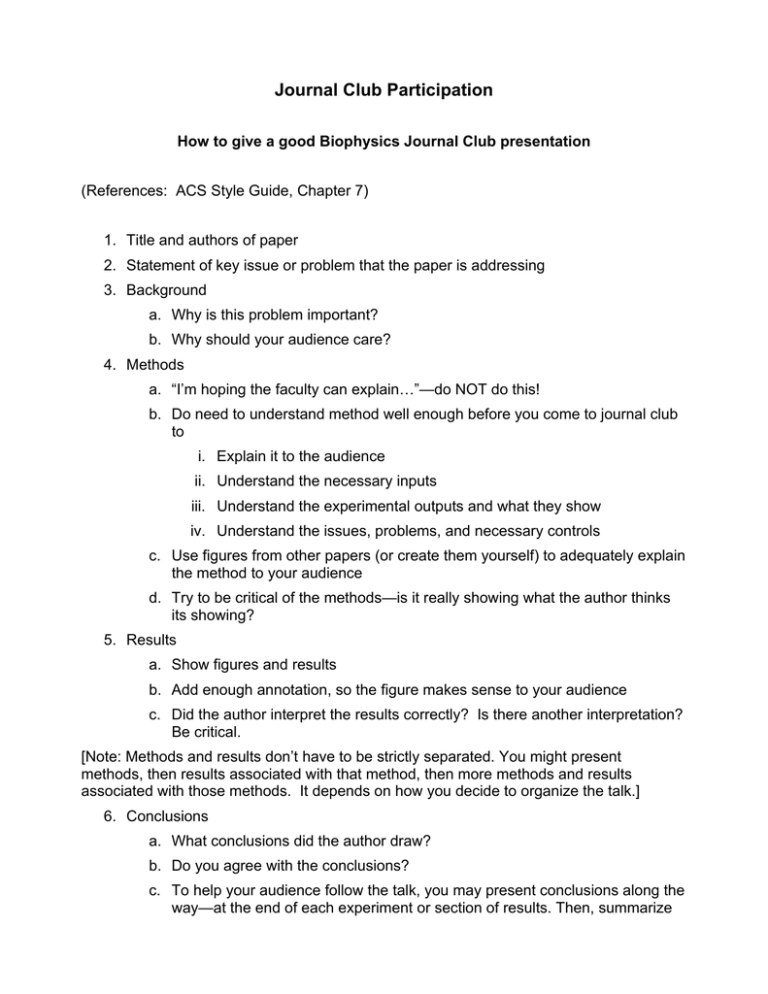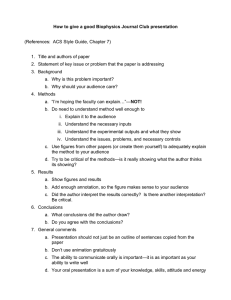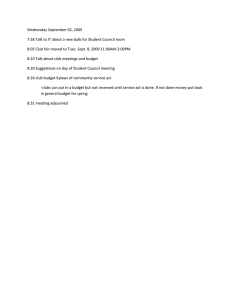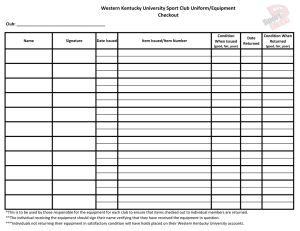Journal Club Participation
advertisement

Journal Club Participation How to give a good Biophysics Journal Club presentation (References: ACS Style Guide, Chapter 7) 1. Title and authors of paper 2. Statement of key issue or problem that the paper is addressing 3. Background a. Why is this problem important? b. Why should your audience care? 4. Methods a. “I’m hoping the faculty can explain…”—do NOT do this! b. Do need to understand method well enough before you come to journal club to i. Explain it to the audience ii. Understand the necessary inputs iii. Understand the experimental outputs and what they show iv. Understand the issues, problems, and necessary controls c. Use figures from other papers (or create them yourself) to adequately explain the method to your audience d. Try to be critical of the methods—is it really showing what the author thinks its showing? 5. Results a. Show figures and results b. Add enough annotation, so the figure makes sense to your audience c. Did the author interpret the results correctly? Is there another interpretation? Be critical. [Note: Methods and results don’t have to be strictly separated. You might present methods, then results associated with that method, then more methods and results associated with those methods. It depends on how you decide to organize the talk.] 6. Conclusions a. What conclusions did the author draw? b. Do you agree with the conclusions? c. To help your audience follow the talk, you may present conclusions along the way—at the end of each experiment or section of results. Then, summarize all conclusions at the end of the talk. This can help your audience follow the talk better. 7. General comments a. Presentation should not just be an outline of sentences copied from the paper b. Don’t use animation gratuitously c. The ability to communicate orally is important—it is as important as your ability to write well d. Your oral presentation is a sum of your knowledge, skills, attitude and energy And, what do we expect from the audience? 1. Journal club participation is NOT a passive spectator sport 2. Read the paper BEFORE the journal club and try to understand it 3. ASK questions, if you don’t understand something the speaker says 4. PARTICIPATE in the discussions Evaluation of your presentation by the faculty 1. Following presentation and discussion, faculty will review your presentation with you and provide suggestions for improvement (other members of audience will leave first) 2. We expect that these suggestions will help you to improve your oral presentation skills





